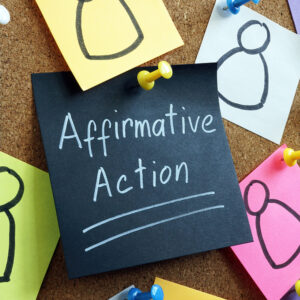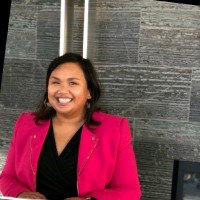For an institution established to be above politics, the Supreme Court has lost an enormous amount of trust lately. First, they came for Roe. Now, they’re about to overturn affirmative action. COVID-19 has already hit students hard, and it has hit young students of color the hardest.
Now, we’re making their journey to college even more difficult. As an Asian American woman who works with thousands of Gen Z’ers and who has seen the benefits of affirmative action firsthand, this is personal.
I was lucky to go to college. I’m the daughter of immigrants who moved to America from the Philippines. I didn’t even know what affirmative action was until I got to college. But something struck me when I heard about it in class. They said the University of California system has been through a 30-year process. They’ve been trying to diversify the students coming to their schools. It was when I looked up and looked around that I realized: “This is why I’m here.”
It was a stark realization. Very few of my classmates looked like me. Very few of them came from my socioeconomic background. I was there thanks to a solid scholarship. I had a Pell grant, a Cal grant, and a private grant. My tuition cost our family about half what it might have otherwise. And I still had to work four jobs to graduate and did a master’s following the same formula.
Nobody else in my family had walked the path I traveled. I excelled in high school. When I scored high on my pre-SAT in my sophomore year, somebody said, “This is great for your college application.” And so I said, “Tell me more about that.”
Because I had no idea what that meant — I did not have a model.
Now, I’ve spent the next 15 years helping the rest of my family get to college and finish their degrees. I have 17 cousins. I’ve taken them on the bus to get scholarship money. I’ve shown them how to apply for student aid. I understand my aunts’ and uncles’ tax returns better than their kids do. I helped all my cousins navigate the system. Then, I went to work for a high school where we helped kids get to college, no matter where they came from. I understand why it matters so much for young people from backgrounds like mine. If someone hadn’t talked to me about what was possible, would I be where I am now?
Many of today’s young people don’t think of themselves as political. But we see issues showing up in our communities. We figure out what caused them. Then we get involved in the process to try to make them better.
I run an organization devoted to young women’s political leadership. Our research shows that until they go to college, young girls and boys run and win at the same rates in school elections. Then, when they go to college, the differences become stark. Without firm encouragement, young women disengage more often.
Now, with the likely end of affirmative action, we’re talking about adding more barriers for young women, especially women of color, to get to college. My question is: Who remains in the pool to build political power if there’s no affirmative action?
If the Supreme Court does what many expect it to do when it issues its ruling on this case, they are reaffirming a system that excludes young people of color when they are most full of potential. We’ll need to double down on telling them: “You deserve to thrive.” We need to break down all the barriers that prevent people on the margins from believing they deserve a place in America’s power structures.
It’s that simple.


